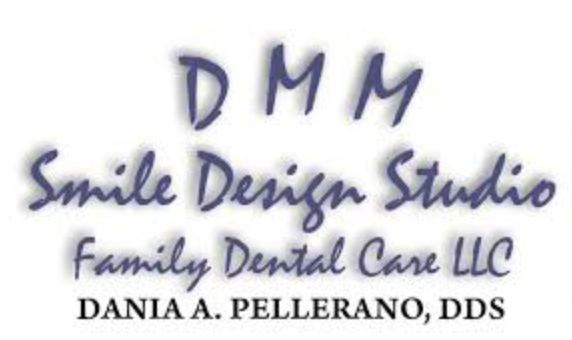
BLOG

Beyond Aesthetics: Understanding the Functional Benefits of Dental Crowns in Restorative Dentistry
When it comes to restorative dentistry, the term “implant crowns” often brings to mind visions of perfect smiles and Hollywood aesthetics. However, there’s so much more beneath the surface. Implant crowns are not just about enhancing your appearance; they play a crucial role in oral health and functionality. Whether you've lost a tooth due to injury or decay, implant crowns can significantly improve your quality of life. In Albuquerque, NM, many individuals are discovering how these innovative solutions go beyond looks to provide essential benefits that keep mouths healthy and functional for years to come. Let’s dive into what makes implant crowns an indispensable component of modern dental care.
How Implant Crowns Work in Restorative Dentistry in Albuquerque, NM
Implant crowns are pivotal in restorative dentistry, serving both functional and aesthetic needs. They integrate with dental implants, which act as artificial tooth roots. This combination creates a stable foundation for the crown.
The process begins with placing the implant into the jawbone. Over time, this fixture fuses with the bone through osseointegration. Once healed, a custom-made crown is attached to the implant.
These crowns restore normal chewing function and improve speech clarity. Beyond functionality, they also enhance appearance by closely mimicking natural teeth.
Patients often appreciate their durability; implant crowns resist wear better than traditional restorations. With proper care, they can last many years without needing replacement or repair.
This innovative solution offers an effective way to address gaps caused by missing teeth while ensuring that daily activities remain uninterrupted.
Types of Dental Crowns and Their Benefits
Dental crowns come in various materials, each offering unique advantages. Porcelain crowns blend seamlessly with your natural teeth, making them ideal for front teeth restorations.
Metal crowns are incredibly durable and withstand significant pressure. They’re often recommended for back teeth where aesthetics are less of a concern.
Ceramic options provide a good balance between strength and appearance, suitable for patients who prioritize both functionality and aesthetics.
Resin crowns are more cost-effective but may wear down faster than other types. They're typically used as temporary solutions while waiting for permanent ones.
Each crown type serves specific needs based on location in the mouth and individual patient requirements. Choosing the right one is crucial for achieving optimal results in restorative dentistry. Call us to learn more.
The Process of Getting an Implant Crown in Albuquerque, NM
Getting an implant crown involves several steps, typically taking place over multiple visits to the dental office. Here’s a detailed overview of the process:
Initial Consultation
- Assessment: The dentist in Albuquerque conducts a thorough examination, including X-rays or 3D imaging, to evaluate the condition of your jawbone and surrounding teeth.
- Treatment Plan: The dentist discusses your dental history, overall health, and goals to develop a personalized treatment plan.
Tooth Extraction (if necessary)
- If you have a damaged or decayed tooth that needs to be replaced, it may need to be extracted before proceeding with the implant. This is usually done during a separate visit.
Bone Grafting (if needed)
- If your jawbone isn’t thick enough or is too soft, a bone graft may be required to provide a stable foundation for the implant. The grafting material can be natural or synthetic. Healing can take several months.
Implant Placement
- Surgery: During a minor surgical procedure, the dentist places a titanium post (the dental implant) into the jawbone. This post acts as the tooth root.
- Healing Period: After the implant is placed, a healing period of several weeks to a few months follows. During this time, the bone integrates with the implant in a process called osseointegration.
Abutment Placement
- Abutment Placement: Once the implant is fully integrated, a small connector called an abutment is attached to the implant. This serves as a base for the crown.
- Healing Cap: A healing cap may be placed over the abutment to allow the gum tissue to heal properly.
Crown Fabrication
- Impressions: After healing, the dentist takes impressions of your mouth to create a custom crown that fits perfectly.
- Temporary Crown: You may receive a temporary crown while your permanent one is being fabricated.
Crown Placement
- Once the permanent crown is ready, the dentist will attach it to the abutment. This crown is usually made from porcelain or ceramic, designed to match your natural teeth.
Follow-Up
- Adjustment: The dentist checks the fit and appearance of the crown, making any necessary adjustments.
- Oral Care Instructions: You’ll receive guidance on how to care for your implant crown, including proper brushing and flossing techniques.
Regular Check-Ups
- Regular dental visits are essential to ensure the longevity of your implant and overall oral health. The dentist will monitor the implant and surrounding tissues during these check-ups.
Conclusion
Implant crowns have become a pivotal aspect of restorative dentistry, especially for patients seeking both function and aesthetics. They provide an effective solution for tooth loss while ensuring that the surrounding dental structure remains intact. Understanding how these crowns work can empower patients to make informed decisions about their oral health.
Choosing the right type of dental crown is crucial. With various materials available, each offering distinct benefits, it’s essential to consult with your dentist in Albuquerque, NM, to find the best fit for your needs. The process may seem daunting at first, but knowing what to expect can alleviate many concerns.
Investing time into understanding implant crowns allows you not only to enhance your smile but also improve overall dental functionality. As technology advances in restorative dentistry, options continue to expand—ensuring that individuals achieve optimal results tailored just for them.
If you're considering this transformative procedure in Albuquerque or nearby areas, take that step towards reclaiming your confidence and comfort today!
To find out more about the dental services offered at our dental practice, call (505) 292-8515 or go online to schedule a consultation. You can also visit us at 8400 Osuna Rd NE, Suite 5B, Albuquerque 87111.
Office Hours
MON - THU8:00 am - 5:00 pm
FRI - SUNClosed






comments